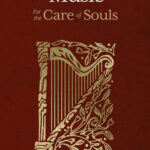
In this excerpt from Funerals: For the Care of Souls, Tim Perry examines the dysfunctional relationship we have with death and how we can recover a Christian imagination of death.
“Remember that you will die.” It was a phrase a slave was said to have whispered into the ear of a victorious Roman general as he returned home in a triumphal procession with his plunder and people, bringing glory to his city. These five words certainly are a good remedy for keeping the ego in check if nothing else. More than that, they are an invitation to consider both the inevitability and ubiquity of death and to live in the light of that reality. They are an invitation to enter fully into life. Stoic philosopher Marcus Aurelius, perhaps the greatest emperor of pagan Rome, phrased it aptly: “Do not act as if you had ten thousand years to throw away. Death stands at your elbow. Be good for something while you live and it is in your power.” On this much at least, Christian faith and Stoic philosophy agree. Death is inevitable and ought to impinge upon how we live this life.
The North American Way of Death
Allison Krauss and Union Station, one of my favorite American roots music bands, recorded an old bluegrass standard that begins, “Everybody wants to go to heaven, but nobody wants to die.” Never underestimate the power of bluegrass music to shine a humorous light on a harsh truth. This opening line is close to the heart of what once was the reigning civil religion of North America. The truth of its first statement is obvious to anyone working with the recently bereaved. Grieving people have little difficulty talking about a wonderful afterlife, even if they don’t actually believe in it.
Contemporary North Americans have a dysfunctional relationship with death: we avoid it until we no longer can, and then we embrace it with a passion that would have alarmed our predecessors. Except in specific circumstances, many North Americans don’t have the vocabulary to even talk about death, much less have a serious conversation about it. This is true even in churches, where one might hope the topic would come up from time to time. When was the last time you heard or preached a sermon on the inevitability and ubiquity of death? Conversations with parishioners who are not dying where death is the topic for spiritual direction or prayer are rare. I am ashamed to say that in my ministerial experience such sermons and focused conversations are almost nonexistent. I did not start talking about death with congregations regularly until I took up work in a funeral home. I may be wrong, but I expect my experience is pretty typical.
How have we arrived at this strange place? A significant reason stems from the North American way of death—from the idiosyncratic way we initially avoid and then embrace it. We can group three avoidance strategies under the label “trivialization.” The first is to deny it—we do not die. Recall the euphemisms in which we couch death. Loved ones pass on. They go home. One of the most popular poems for memorial cards in my local funeral home puts the issue plainly: “Do not stand at my grave and weep. … I am not there. I did not die.” A second way North Americans trivialize death is at once more subtle than outright denial and more acknowledging of its reality: distraction. Our culture takes a level of unprecedented leisure available to nearly all income levels, and we frenetically fill it with flash and fury, ultimately to keep us from thinking about life’s inevitable end. The third way we trivialize death is to medicalize it—to treat it as a medical problem that will one day be fixed.
The Christian Way of Death
A Christian understanding of death is not nearly so instrumental and certainly not as deifying as the one just described. Neither does it trivialize or objectify it. In the Christian imagination, death presents us with the mystery of life held in the hands of God—life that is not our own, that is fragile and limited. It presents death as the great severer of all loving relationships, as the punishment for sin, and as the final enemy. That’s the bad news. And it’s where we must begin.
In our current context, we must begin here lest we trivialize death and so lose our capacity to speak meaningfully about it. So let’s start with a simple observation: death is not an inconvenient hiccup in one long, perhaps eternally extended, happy life, but rather the end. This simple but by no means naïve view of death and the goodness of this life is developed by later strata of the Old Testament and Jesus’ teachings, to say nothing of his death and resurrection. But wherever we end up, we must start here. Death is the end. And that means that heaven as an uninterrupted family reunion simply will not do. Death is a break with life.
But the Bible does not stop with the bad news about death. It rereads all of the above in the light of the life of Jesus. In doing so, the Bible at once recognizes the reality of the bad news and daringly asserts that it is, in God’s ultimate goal, good news—such that death is no longer simply the end but is also a new beginning. This is not because of anything inherent in human beings. Christians do not believe—as the great neo-Platonic philosopher-mystic Plotinus did—that sloughing off our bodies frees our immortal souls to return to our true disembodied home. Rather, for the Christian, death is, in all its awful final weightiness, the completion of our identification with the Lord Jesus in this life. Death is an identification stamped on us in our baptisms: “Do you not know that all of us who have been baptized into Christ Jesus were baptized into his death?” (Rom 6:3). Our identification with Jesus, marked by our baptisms, means that for Christians, death is indeed the end of this life—not as an abandonment into Nothing but the final abandonment into the One who tasted death for all, and so removed its sting. It is the fullest abandonment into Christ, and as such, is an abandonment into Life more abundant than we can now ask or imagine. Saint Paul continues, “We were buried therefore with him by baptism into death, in order that, just as Christ was raised from the dead by the glory of the Father, we too might walk in newness of life” (Rom 6:4). This abandonment of life for Life through identification with Christ begins even now, and carries on, in some way, forever. Thus, Dietrich Bonhoeffer’s last recorded words are spoken for us all: “This is the end. For me, the beginning of Life.”
As the fullest moment of our union with Christ foreshadowed in our baptisms, death for the Christian is finally the embrace of eternal Life. Death is not an abandonment to Nothing, whether fearfully, defiantly, or happily, but an abandonment to the Lord, who calls the things that are not as though they are, who by his Spirit, fills us with his Life. So yes, death is the final enemy, and against him, in our own strength, the battle is indeed lost.
Were not the right Man on our side,
The Man of God’s own choosing.
You ask who that may be? Christ Jesus, it
is He;
Lord Sabaoth His Name, From age to age
the same,
And He must win the battle.
Luther’s mighty hymn gives us the tools with which to read death in a Christian way. It is Christ who defeats death, and in so doing, transforms it into a new beginning, a union (and hopefully reunion) in the fullness of the divine love. In Christ alone, death becomes a gateway to eternal Life. And that is good news indeed.
This post is adapted from Funerals: For the Care of Souls by Tim Perry (Lexham Press, 2021).







